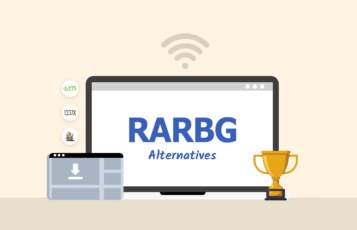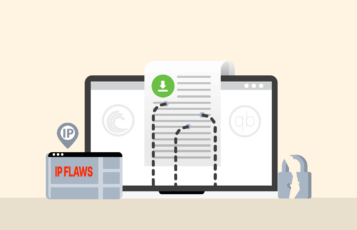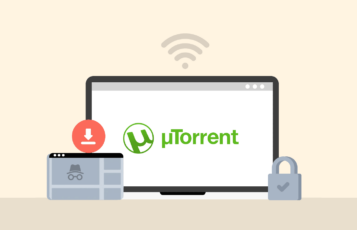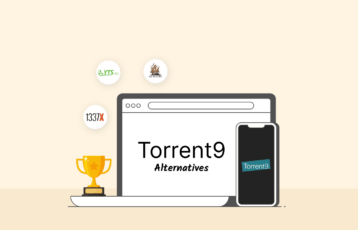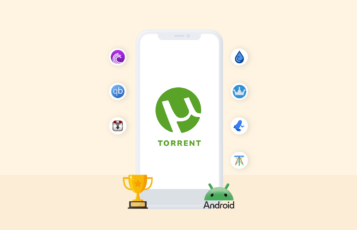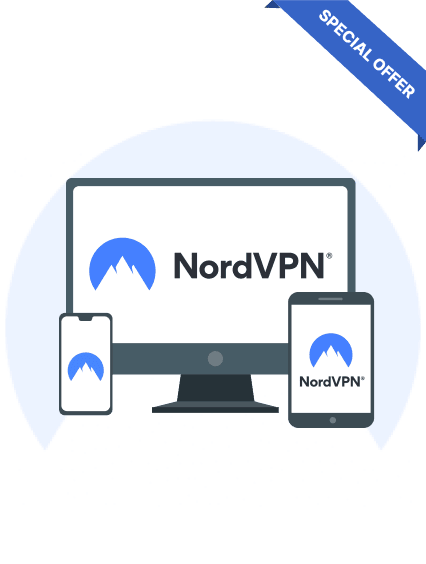Torrenting is a type of file sharing that enables downloading licensed content. However, torrenting can cause significant problems if you are not protected. Many countries have strict laws against accessing and downloading copyrighted material, declaring such acts illegal.
Moreover, your IP address becomes visible to hundreds of users downloading the same file simultaneously, thereby making you potentially vulnerable to cyber-attacks. Nonetheless, you can apply some tips and tricks to download torrents safely.
We will tell you all the steps you can take to keep yourself safe while torrenting, but let’s cover some useful basics first.
A quick overview on how to be safe while downloading torrents online
Risks of torrenting without protection
There’s no denying that torrents are a fast, effective, and reliable means of downloading files online.
However, torrent downloads come with some backlashes that you should know. Read along and discover dangerous cyber threats associated with torrent downloads.
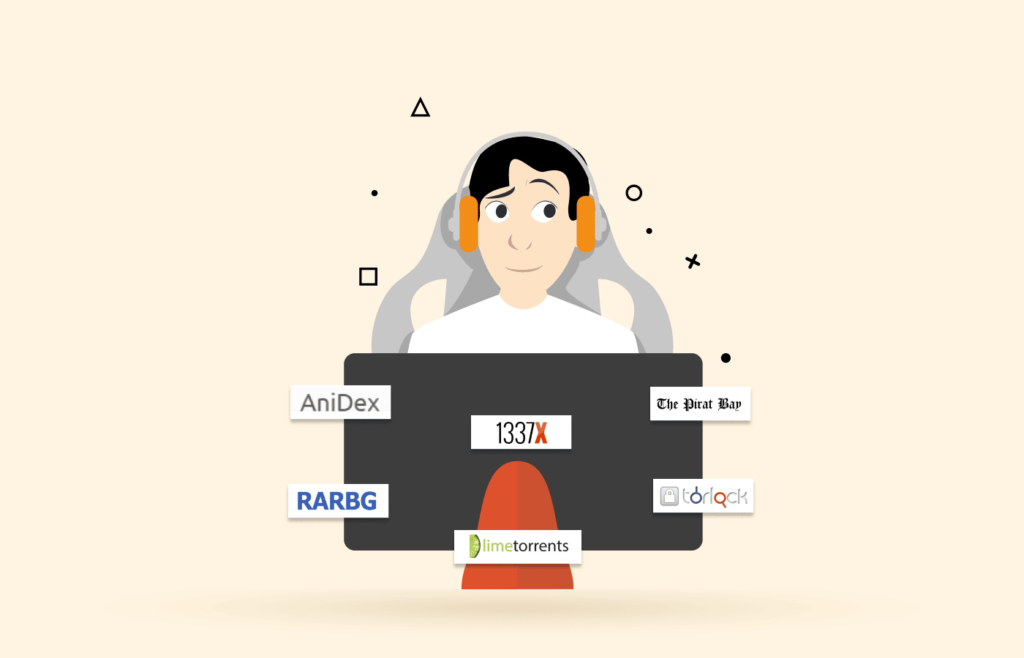
Legal consequences
Most of the content that’s downloaded using BitTorrent and other torrent clients is copyrighted content, meaning that downloading it could be illegal, and one could be subjected to the full force of the law.
In fact, the biggest risk when it comes to torrenting is associated with copyrighted content.
Since security agencies and Internet Service Providers (ISPs) know many folks download copyrighted material, they monitor all online activities, especially torrent-related ones.
Therefore, torrent users are under constant surveillance from the ISPs who monitor all their activities, such as websites users visit and even what they do on those sites.
Once they discover any copyrighted torrent file or illegal file downloads, your guess is as good as mine; the user faces legal consequences.
Sometimes, the legal action can range from the imposition of huge fines to the suspension of the user’s ISP’s license.
Data safety
Torrenting could be easy and fast, but you run another big risk of data theft and loss.
Once a torrent file has been downloaded and stored, depending on where you store it on your computer, it can give spammers access to your critical information.
For instance, if you’re a company employee, there are chances that you download torrent files and then store them in a folder containing the organization’s policies, employee records, stakeholder information, and compensations.
Imagine what would happen when the higher authorities access the folder and realize a torrent file exists.
It’s pretty obvious that impression won’t be good, and perhaps some steps might be taken against you. Besides, it allows hackers to access your company’s data.
Vulnerabilities
Hackers will lick your lips when you download and store torrents online.
As much as P2P file sharing doesn’t offer a direct threat, a hacker can get access to your system, and what they’re capable of is well known.
Once you download, upload, or share the torrent file, you open the doors for hackers to collect personal information online.
However, you don’t have to worry as you can use privacy tools like a VPN to limit the risk and stay anonymous while torrenting (more on it later). Besides, you can opt to alter the settings of your system and make all folders password-protected.
Malware risks
Another common risk that most torrent users face is malware. What makes it even worse is the fact that you could be downloading a torrent file containing the virus without knowing.
The results of downloading malware-affected files may damage your device.
Sometimes, they could cause your device to take ages to load files, shut down unexpectedly, have too much heating, and even corrupt your other files.
Therefore, to ensure that you don’t expose your device and its contents to malware risks, always make sure that you scan your torrent file immediately after downloading it using an antivirus program that you trust.
Also, various torrent trackers filter and remove the files that have been reported to contain malicious content.
7 ways to download torrents safely
You already know the risks of torrenting, and you probably won’t want to fall victim to any.
So, what should you do to ensure that you can torrent safely?
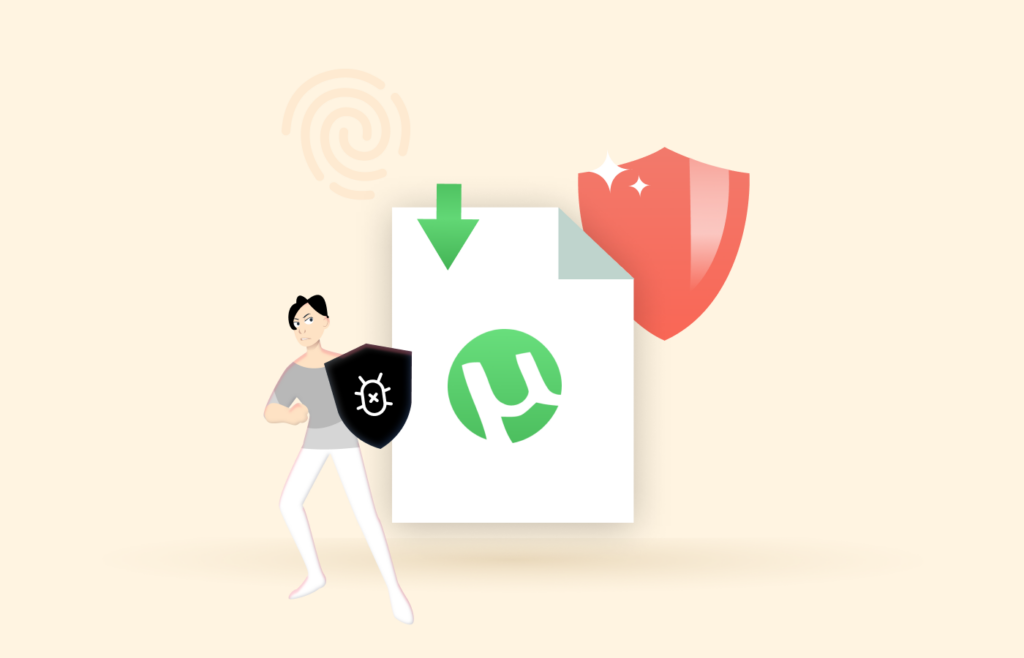
There are several ways that you can use to mitigate the potential torrenting risks, and they include;
Disclaimer: All the tips are provided only to educate general internet users on how they can download torrents without compromising their security. We don’t encourage downloading copyright-protected content.
1. Use a VPN
As a rule of thumb, you should not torrent without a VPN. Always think about a VPN first when torrenting.
A quality VPN will encrypt your device’s incoming and outgoing internet traffic.
This means that even your ISP won’t be able to track your activities online, like the top torrent websites you visit and the things you do on those sites.
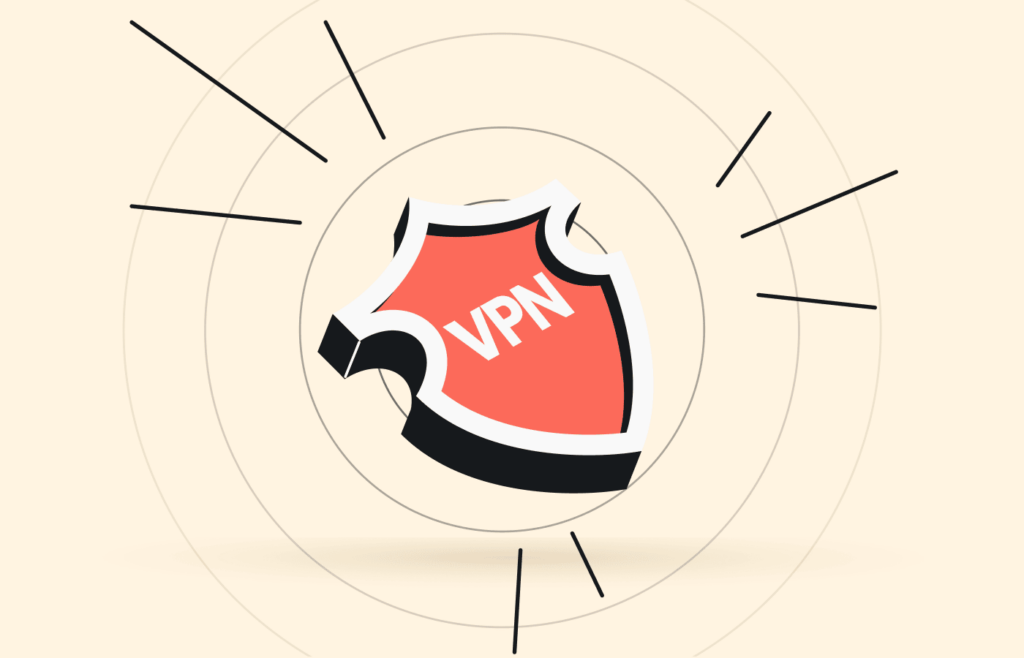
So, a VPN connection provides you with robust security online, meaning you can torrent knowing there’s no way Big Brother could be watching.
Moreover, torrenting while connected to a VPN that supports P2P traffic prevents the services and websites you visit from tracking your IP address.
Most agencies monitor popular torrent websites to get to users when they download the torrent; a VPN will block anybody who attempts to unzip those tracks to obtain your actual IP address by only providing them with the IP address of the VPN server.
Some VPNs with no log policies will also block any targeted method agencies use to track down VPN users.
Therefore, you should ensure that you choose not only a VPN but one that includes a zero-log policy.
Besides, a VPN will help keep all the hackers at bay so they cannot obtain your actual IP address for hacking into your system.
So, the first (and most important) step to download torrents safely is to get a quality VPN for torrents, such as ExpressVPN, that offers lots of bandwidth, zero-logs, faster speeds, and special torrenting VPN servers.
2. Install quality antivirus
Just like a VPN is essential for downloading torrents safely, so is a good antivirus. In fact, it should be part of your active security tools when surfing the internet.
The easiest way that most hackers use to get into your device is by hiding malware in the torrent files you download.
Once downloaded and stored on your device, they can access it and obtain personal information against you.
For instance, malicious actors use nasty malware such as Trojans and Ransomware to infect your device and can even control it.
Ransomware, for instance, enables the hacker to control your device and encrypt it to demand payment.
On the other hand, Trojans are mostly designed to enable the hacker to hijack the microphone or camera of your device and steal data, photos, personal files, contacts, or snoop on your daily activities.
If you have a quality (and up-to-date) antivirus program installed on your device, it will protect you from all possible hassles and ultimately enable you to stay safe when torrenting.
3. Are you using the right seed?
The primary concern when torrenting is to avoid the potential risks associated with torrent downloads, such as malware and strikes from legal authorities.
One of the best ways to do this is to ensure that you are following a crowd. For instance, you’re not the first person to torrent, and probably not the last.
Whenever you want to download a file, you should first search for popular torrents, meaning that a torrent with several seeders should definitely be the one you’re looking for.
Seeders are users who have downloaded the files fully on their devices, allowing others to take some data from them (their computers). A torrent without seeders should be considered malicious and should be avoided.
Consider Some “Flair”
Also, there’s another way that you can use to find whatever you’re looking for easily and safely.
You can use torrent repositories and safe Pirate Bay alternatives such as YTS or EZTV. Those websites are familiar, and they verify their users using a “flair” system. You can ascertain a genuine seeder and a fake seeder there easily.
For instance, most sites use a “tag” on users to denote those that you can trust. Depending on the site, you can see different colors for the ‘flair,’ such as a pink skull for a trusted tag and a green skull for a ‘VIP’ tag.
Therefore, looking for seeders and checking for flairs will prove to be significant in helping you avoid most of the torrenting risks.
It’s not a coincidence that torrents with several seeds have a plethora of leechers. You definitely want to get your file from a reliable torrent.
4. User comments are vital
Torrent sites attract a huge amount of users, and the fact that most websites provide a section for the users to comment on what they feel about particular torrents is a great way to ascertain whether a given seed is genuine.
Most downloaders will comment positively for torrents that are genuinely worth it (and safe); hence, you can easily pick the best you’re after.
All you need to do to get to the comments is search for whatever you’re after first.
After that, look at the torrent seeds and click on the one you fancy, then scroll to read the comments of other downloaders.
However, let the comments not fool you, as there also can be some trolls, whereby some could be overpraising a not-worthy seed or even criticizing a seed that’s indeed legitimate without any reason.
So, even though checking out user comments is vital for safe torrenting, you must be cautious when deciding depending on the comments.
5. Join private torrent communities
The private torrent communities, sometimes called closed-door torrenting communities, are private trackers meant to preserve the torrent quality.
And the benefits of joining such a community are pretty obvious.
As such communities only boast selective members and are mostly well-funded, you can access quality torrents, given that only carefully hand-picked torrents make it to them after an extensive moderation process.
Unfortunately, joining such a community is not a walk in the park.
Such communities work under the one-in-one-out policy; therefore, the private trackers already in the community will not carelessly want to lose their place at the big table, and they could rather jealously guard the spot.
The most sought-after popular private torrenting communities include IPTorrents, PassThePopcorn, Zeronet, and Demonoid.
Most of these communities are only accessed via an invitation, and if you manage to get one from any of them, you can be assured of a place where you can trust the quality of torrents.
It means you will be enclosed away from encountering malicious files, malware, spam, viruses, and Trojans.
First, to increase your chances of getting into private torrent communities, ensure you hang out on torrent boards such as r/torrents on Reddit.
That way, you can make friends that may invite you to the closed-door torrent communities.
Once you’re in such communities, they mostly have a rule that you should give as much as you take. It means you must maintain the ratio of downloading and uploading (must be 1:1).
The good news is that you won’t be required to meet with that immediately upon joining the community, as they give you a grace period to settle and learn the trade for achieving that equilibrium.
Otherwise, if you fail to achieve it, you can donate to settle the cost of servers, but it’s the route many people don’t want to follow.
Maintaining your ratio is even cheaper as you only need to start by downloading smaller files you deem popular.
Once it’s done, other leechers will want to have your files, and hence, you’ll be uploading them – and there you go, you’re off the mark.
Also, ensure that you stay active to download the latest torrents quickly, making it more likely to seed them back with more success to others.
6. The sandbox route
Another safe way to download torrents is to ensure all your downloaded files go through a sandbox environment.
Most downloaders do not consider this elevated security precaution. Still, if you usually download executable (.exe) files such as computer programs, you should increase your torrent safety by putting the downloaded files into a sandbox.
The significance of a sandbox is that it ensures malicious files don’t affect your device in case you happen to download malware or a virus unknowingly.
It helps you check if your downloaded file is legitimate before you go ahead and install it onto the main device.
Sandboxie is an excellent sandbox program for secure web browsing and application isolation, enabling you to create a sandboxed environment on your computer easily.
7. Avoid executable files
Sometimes, it can be difficult to avoid executable files like .APP, .EXE, .SCR, .BAT, and several others, but you must keep control and avoid downloading such files.
These files are usually at the highest risk of malware and virus infection.
These executable files usually execute an action once they are run; hence, they easily transmit malicious data and viruses to your machine.
However, if you must download such files, then you must ensure that you first scan them with trusted antivirus software.
Fortunately, there’s a way you can spot fake installers by merely checking a download size against the actual installer size.
Ideally, the size should be the same, and anything different (a noticeable difference) should indicate the file’s corruption.
However, you should be aware that hackers are also getting smarter each day, and they know you may want to check the file size before you download it.
Therefore, to ensure that you always stay a step ahead of them, ensure that you install an up-to-date antivirus (as noted above) and an anti-malware program.
Besides, you should ensure your antivirus program is regularly updated alongside the device operating system and other applications.
Is downloading torrents legal or illegal?
Most people keep asking the million-dollar question of whether torrenting is legal or illegal.
The answer is simple – torrenting alone is legal, but downloading copyrighted content is illegal.
Unfortunately, it can be challenging to differentiate legal content and illegal content at a glance. Therefore, you must be careful while torrenting; otherwise, you may get yourself in hot soup.
The thing worth keeping in mind is that what you share through torrents is what might get you in trouble in some countries, not the torrenting method itself.
Basically, those who download and host copyrighted material on their servers are the ones deemed illegal.
Therefore, streaming or downloading content is not a big concern for copyright holders, but their major focus is on individuals uploading and hosting their content.
With torrenting, you become the hoster and the primary target for any file you download.
How folks get caught while downloading torrents
Another common question people keep asking around torrents is whether you can get caught torrenting.
An essential thing to note is that copyright trolls, alongside government agents, are well aware of what’s happening in various torrent networks.
How? I hear you ask.
Because they snoop around all those sites listing IP addresses under the downloaders and uploaders lists, which can eventually compromise your address.
Moreover, how torrents work makes it possible for you to get caught.
For instance, torrents use a specific file transfer method based on BitTorrent technology using a given port for traffic, making torrenting traffic distinctive and easy for authorities to spot (that is why most ISPs can throttle torrent traffic easily).
So, when using torrents over a regular internet connection without hiding your IP address, there’s every chance that your ISP can investigate the type of files you download. If they are illegal files, then they can take appropriate action.
The bottom line is that ISPs find it easy to track folks who use torrents as torrent sites leak users’ IP addresses to facilitate downloading.
Therefore, once your ISP spots torrent traffic and realizes that your IP address is illegally sharing a particular file, you better know it can be more than a disaster recipe.
A VPN is your best friend for safe torrent downloads
Sharing files has come a long way, and there are no signs of stopping soon.
Torrents are a major part of that ecosystem, and it seems that no matter the consequences that are at stake while torrenting, people keep diving into it.
However, you don’t have to worry too much about the risks you may get into, as the only friend you’ve got to have your back is a quality torrent VPN. The fact is, torrenting won’t be safe unless you don’t install the right VPN.
Therefore, you should use only the best VPN to protect you when downloading torrents.
A good VPN will let you roam freely and access unlimited torrents while being assured that your tracks are covered from big brother spying that has reached scary levels.
If you ask me, NordVPN is at the top of our recommended VPNs list for downloading torrents.
It is all based on the fact that it offers a plethora of torrent-friendly VPN servers with fast speeds and unbreakable security.
On top of enabling you to download torrents safely, a good VPN, such as ExpressVPN, which has servers across the globe, can unblock Netflix and almost all the geo-restricted sites like BBC iPlayer, Hulu, and more.
Moreover, a VPN helps to route your traffic via their servers, meaning that your IP address will be hidden from all third parties.
So, VPNs are not only limited to BitTorrent traffic but also conceal other traffic sources on the connection.
Consequently, a VPN will completely mask your online identity and make it almost impossible (yes, nearly, as your ISP can still trace you sometimes) for anyone to track your activities.
All in all, as you can better understand now, you should consider a VPN to be your best friend while torrenting.
How to set up your VPN for safe torrenting
Having a VPN is not enough security to keep you completely safe when torrenting – it’s important to configure it properly to protect yourself from online dangers. Once the VPN is installed, head to the settings section to activate basic security settings. These include;
- Select a nearby server in a safe jurisdiction for torrenting: Countries like Australia, Germany, the US, and the UK have strict laws regarding online piracy and copyright infringement. When torrenting, connecting to servers in these countries can potentially result in legal consequences. Always select a nearby server in a safe jurisdiction where you are sure your online activity is not monitored or traced.
- Check for leaks: Use a VPN leak tool to test whether your IP address is visible when connected to a VPN. Your online activity can be traced back to you if your real IP address is exposed. A VPN leak tool gives you an insight into whether the VPN is working correctly and whether your IP address is leaking outside the VPN tunnel.
- Ensure you’re using a secure protocol: The security protocol used by your VPN determines the quality of encryption used to protect your data. The best encryption protocols are Wireguard, IKEv2, and OpenVPN. Avoid VPNs that use PPTP because they can be easily compromised and leave you vulnerable to cyber threats.
- Enable kill switch and leak protection: A VPN kill switch disconnects your internet connection whenever your VPN malfunctions. This prevents your actual IP address from being exposed in the torrenting swarm, enabling leak protection, which is also crucial because it prevents your IP address from being leaked outside the VPN tunnel. You should double-check that these features are active in your VPN settings. Notably the VPN kill switch.
- Connect to a P2P server: Peer-to-peer (P2P) is a distributed app architecture that partitions tasks or workloads between peers. The best torrenting VPN servers are optimized for P2P traffic, ensuring a fast and reliable connection for downloading and uploading files.
How to configure your torrent client
Ensure you configure your torrent client correctly to enhance privacy and security when downloading and sharing torrent files. By properly configuring your torrent client, you can maximize your protection against online threats and minimize the risk of being caught while torrenting.
- Enable IP binding: This is useful if you use a VPN without a kill switch, an unreliable or leaky VPN, or just running a proxy. If the VPN or proxy connection drops, IP binding will pause your downloads until the connection is re-established, preventing your actual IP address from being exposed.
- Ensure “Start qBittorent on Windows start-up” is not enabled: If this feature is enabled, qBittorrent will automatically start and seed torrents when you start your computer. This could be a problem if your VPN still needs to be connected or disconnects while your computer starts. Disabling this feature will prevent qBittorrent from automatically starting up and reduce the risk of leaking your IP address. You can find these settings here: Tools > Options > Behavior.
- Ensure “Check for program updates” is enabled: Ensure your torrent client is up-to-date to avoid bugs or vulnerabilities that could compromise your security or anonymity. Enabling this feature will ensure the client automatically checks for updates and installs them when available.
- Install a trustworthy torrent client: Choose a trustworthy one to avoid downloading a client that may contain malware. qBittorrent is free and has many features to enhance your privacy and security.
How to open .torrent files safely
A .torrent file does not contain the files you may want to download. Essentially, it connects to other users who are seeding or uploading the content you want to download. First, you must install a torrent client, such as uTorrent or qBittorrent, to open a .torrent file. After that, double-click or launch the .torrent file to start torrenting.
However, torrenting has two main risks:
- The torrent’s contents can be harmful because cybercriminals may exploit it to embed malware.
- Anyone with access to the .torrent file can view Your IP address.
We recommend you use a reliable VPN service, such as ExpressVPN, to enhance your safety when torrenting.
The three best VPNs for torrenting
1. NordVPN
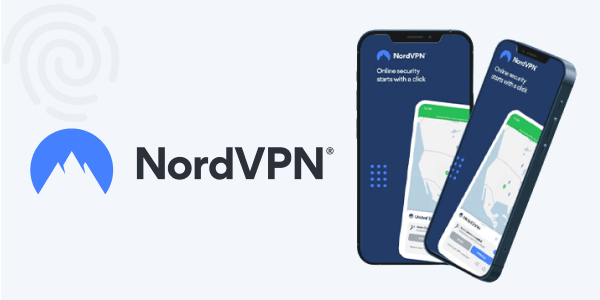
NordVPN is an excellent torrent VPN with fast speeds and exceptional security. It has over 6,800 servers in 113 countries optimized for P2P activity. It also provides a P2P server selection tool to help you connect to the fastest server based on location. This VPN uses AES 256-bit encryption protocol to protect your connection when torrenting.
It also comes with a kill switch and DNS/IPv6 leak protection to protect your data from leaking into the torrenting swarm. NordVPN has servers even in regions with strict internet restrictions, and its SmartPlay feature helps you bypass geographical restrictions. This service also offers a 30-day money-back guarantee, which allows you to test its services without risk.
2. Private Internet Access (PIA)
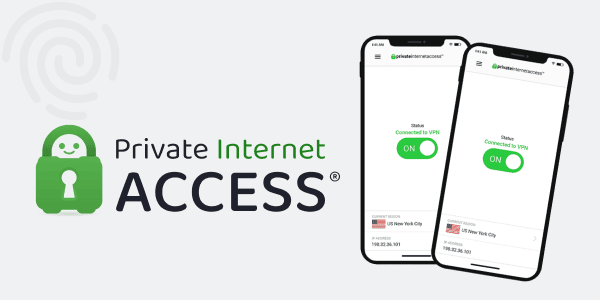
PIA is a reliable VPN for torrenting that allows P2P activities on its entire server network. It has unlimited data and bandwidth, so you can efficiently download large torrent files. With over 34,000 servers distributed in over 90 locations, the VPN’s Smart Location feature can find the most optimal server.
Its high-security standards and trusted server technology ensure secure and anonymous torrenting. This VPN comes with a 30-day money-back guarantee, making it risk-free. However, it is a bit expensive when compared to other VPNs.
3. Surfshark
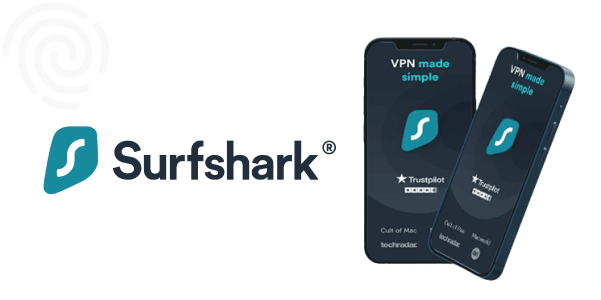
Surfshark is an affordable VPN that provides secure and fast torrenting. Its more than 3,200 servers support P2P sharing. The VPN can also bypass restrictions and help you access geo-blocked torrent sites. Surfshark uses AES 256-bit encryption, the most secure encryption protocol, to protect your torrenting activities.
The automatic kill switch temporarily blocks your traffic if the VPN connection drops. Surfshark maintains a strict no-logging policy and is registered in a region with friendly privacy laws – the British Virgin Islands. It also has features like MultiHop mode, camouflage mode, and CleanWeb to enhance privacy and security.
What should you look for in the safest torrenting VPN?
There are many high-quality VPNs available, making it difficult to choose the best one for torrenting. The quick guide below narrows down the list.
| Feature | Description |
|---|---|
| Privacy and Security | RAM-only servers, independently audited no-logs policy, AES-256 and ChaCha20 encryption, a kill switch |
| Torrenting | Torrenting optimized servers, P2P friendly |
| Servers | Extensive servers, obfuscated servers |
| Speed | WireGuard tunneling protocol |
- Security and Privacy: Torrenting is a risky activity that can compromise your online privacy and security. That is why you need a VPN service with dependable safety measures. These can be robust encryption, anti-malware protection, and modern tunneling protocols. Also, it should have a reliable kill switch to prevent accidental leaks.
- P2P support: Peer-to-peer connections are the fastest and best methods to share torrents. So, you must choose a VPN provider that allows torrenting on all its servers or has P2P-optimized servers.
- Price: Ensure you pick a VPN provider that suits your preferences and has the best price-to-value ratio. Most paid subscription plans come with a risk-free money-back guarantee that enables you to test the VPN’s services before committing to a long-term subscription.
- Speed: Choosing an ultrafast VPN will help you download your files swiftly. Therefore, pick a VPN service with the industry-standard WireGuard tunneling protocol to optimize your speed connections.
Can I torrent safely with a free VPN?
Free VPNs are unsafe to torrent because they have limited security tools and server choices. This means you will not have access to the fastest encryption protocols, best data encryption, or extra security tools such as a dependable kill switch.
Moreover, free VPNs either lack specialized P2P servers or their servers fail to support torrenting. Also, they may collect and sell user data to third parties or even target you with malicious ads that compromise your security.
You can use a freemium VPN, such as Proton VPN, if you are on a budget. This is a premium VPN provider that offers a free version. Although it will allow you to torrent safely, you can only do it on a single server.
The best way to torrent safely without any limitations is a premium VPN like ExpressVPN. It has robust security and privacy features to enable you to do torrenting activities safely and anonymously.
Be a responsible torrent user
Now, you must be aware of when torrenting is deemed legal and illegal. Also, you know about the risks of torrenting and the effective ways to help you torrent safely and privately.
However, as much as you may use all the precautions to the dot, the chances are that you can still get in trouble.
Therefore, you should first practice being responsible for everything you want to download.
For instance, thoroughly consider the file you’re after, its copyright and legal status, and any possible risks of downloading copyrighted content through BitTorrent.
This article has provided guidelines to ensure you download torrents responsibly without any problems. Now, it is time for you to act responsibly and use your common sense.
Port forwarding and NAT firewall warning
Most home VPN services and Wi-Fi routers come with NAT firewalls to prevent unwanted online traffic from reaching your devices, which is great for security. However, these firewalls can disrupt torrenting by blocking connections to peers, reducing download speeds and the inability to upload files.
To bypass NAT firewalls, you can use a technique called port forwarding. Most Wi-Fi routers, torrenting software, and VPNs allow you to configure port forwarding. Nevertheless, you need to be careful with this technique because it can open ports that attackers can use to access your device. If you use a different port for torrenting than most other users, third parties might be able to trace your online activity.
FAQs
It works just like a VPN kill switch but requires more configuration. It allows you to enter an IP address to torrent from and block any other connections. When enabled, the torrent client will prohibit connections from your real IP address whenever your VPN or proxy connection is disrupted. This effectively blocks the torrent and hides your identity. This feature is called IP Filtering in qBittorrent and can be found in the Options > Connection settings. While it may require some initial setup, enabling IP binding can add a layer of security to your torrenting activities by ensuring your actual IP address remains hidden. It is handy for those frequently switching between VPNs or proxies while torrenting.
A VPN conceals your IP address and location and encrypts your data to protect you from cyber threats. In addition to these benefits, a good VPN service also comes with several security features that enhance your protection. For instance, it can protect you from malicious torrenting sites, block pop-ups, and DDoS attacks.
There are online tools that can help you determine whether your VPN functions correctly and\hide your IP address as intended. You can use checkmyip.torrentprivacy.com to verify your VPN’s functionality and whatsmyip.org to check your public IP address. If both resources confirm that your VPN is active and hiding your IP address, you can torrent with an added layer of privacy and security. While these tests can be helpful, they could be more foolproof, and it’s always advisable to research your VPN provider and confirm their policies and features to ensure optimal protection.
